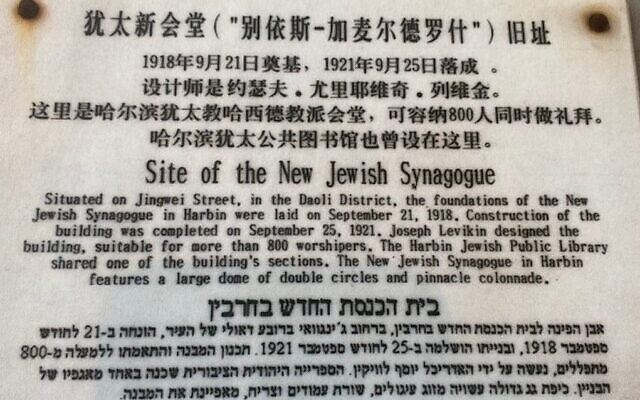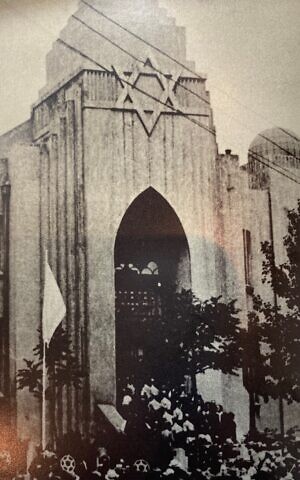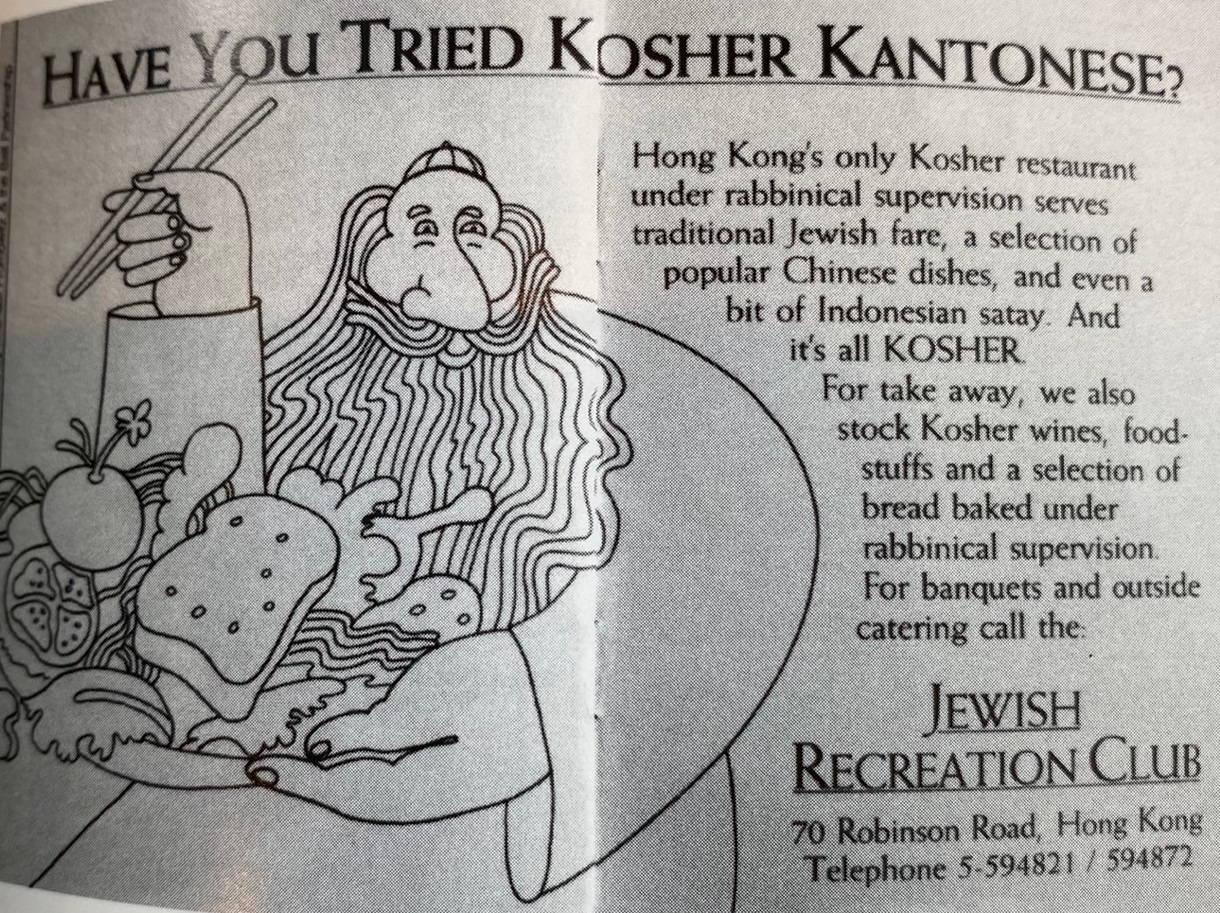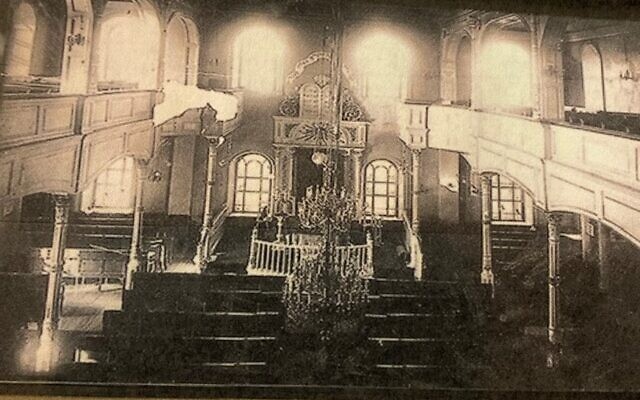The Jewish Legacy in China
One woman found her heritage and discovered that the Jews helped build the Chinese economy.
In Atlanta, the AJT recently had a conversation with Sarah (her name was changed at her request to protect her privacy), who lives here, but was born during World War II to a Jewish family in China. She had a great interest in knowing about her family, traveled to China where her family lived, and found an entire history of the Jews in China. This is her story.
“I was born in Shanghai, China in 1944. Shanghai at that time was a political anomaly. Control was split between the beleaguered Republic of China, an increasingly aggressive imperial Japan, and France, Britain, and the United States. We lived in the self-governing French Concession on Rue Paul Henri, a residential street lined with mulberry trees. I had a nanny who bound her feet and worshipped Confucianism.”
“Japan invaded China in 1941 as an ally with Germany. I remember crouching on the floor in the corridor of our home that had blackout curtains draped over the windows as sirens were blaring, while I heard Japanese bombs exploding. The only difference with Germany was that the Nazis annihilated the Jews and the Japanese wanted to access China’s wealth and power and expertise to finance Japan’s industrial development.”

“When I lived there, Shanghai was even then a spectacular cosmopolitan city built by Westerners. Three Baghdadi Jewish families, the Sassoons, Kadoories and Hardoons, came to Shanghai in the mid-1800s at the height of the opium trade, and, over time, established huge businesses that included owning beautiful hotels and major real estate buildings. Both Russian and Sephardic Jews thrived in the import-export businesses. When I lived there, there were synagogues, a Jewish school, a Jewish hospital, and a beautiful Jewish Club.”
China never witnessed antisemitism for three reasons. Antisemitism is associated with Christianity, while the Chinese are influenced by Confucianism, Buddhism and Taoism, so a deep religious bias does not exist in China, and never has. Culturally, Chinese and Jews share similar cultures both emphasizing family ties and education. Both respect Heaven’s Way, venerate ancestors and parents. Both call for harmony with wives and children, have respect for the law and rank. But mostly, the Chinese people have suffered as much devastation as the Jews have. Their shared experience engendered a deep sympathy for Jewish people and has made the Chinese oppose any kind of antisemitism.
From 1933 to 1941, more than 20,000 Jews from Austria, Germany and Poland fled to China’s largest city to escape the Holocaust. A compassionate Chinese ambassador in Vienna, Ho Feng-Shan, illegally issued close to 2,000 entry visas to Shanghai in order for the Jews to receive exit permits from Austria. Shanghai was the only city that accepted these refugees without an entry visa. The Mir Yeshiva in Poland was the only yeshiva in Eastern Europe to survive the Holocaust.

Unlike other refugee experiences, their immigration to China came in the early 1940s and was over land with various stops, contrasting the direct sea routes taken later to Shanghai by the German and Austrian Jews. However, the European Jews were housed in unsanitary, abysmal ghettos without running water and toilets. They endured curfews under Japanese jurisdiction. Remarkably, almost all of the Jews in Shanghai survived the Holocaust and settled around the world to live out their lives.
Sarah remembered, “Once the refugees arrived in Shanghai, the established Russian Jews organized a fund to financially help these refugees. They also helped by throwing employment cards into the ghetto. The men in the ghetto presented these cards to the Japanese guards, and that allowed the men to leave the ghetto and enter the commercial center. Jewish businesses, like my family, quickly employed the refugees.”

Sarah recalls a refugee eating regularly at her home. He had lost his entire family. He later went to America to start a new life. Her family employed a number of these refugees.
“My mother was born in Harbin, Manchuria, a small city in Northern China, more than 1,000 miles away from Shanghai. My father was born in Rybinskoe, Siberia. Harbin, back then, was a tiny fishing village until the construction of the Trans-Siberian Railway. From 1896 to 1924, Russia was granted an occupancy concession for its people to live in Harbin. As a result, fleeing Jews from pogroms in Russia found freedom in Harbin. The Jews established a flourishing, cultural city with two synagogues, a mikvah, kashrut, a gymnasium, hospitals, a soup kitchen for the poor, and a Jewish theater. My grandfather headed the Chesed Committee, distributing challahs and chickens for Shabbat to needy Jewish families and matzah and food for Pesach.”
Harbin Jews became the founders of Harbin’s industry, commerce, and infrastructure. These pioneers built financial institutions, department stores, insurance companies, beer and cigarette factories and high-class hotels. They provided a solid foundation for their later economic activities in Europe and America. According to a plaque in the city, they had an everlasting contribution to the development of the city, its economic strength and international prestige.
Sarah said, “My father was sent out of Russia as a youngster to avoid the Russian army. He worked in a cigarette factory until he made his way to Shanghai where he married my mother. He became a successful entrepreneur. My father and my uncles had a watch factory in Switzerland and sold these watches in China.”

China always was ruled by a dynasty, but after World War II it was at a crossroads. Sun Yat-Sen (the father of Republican China) pioneered the Republican Revolution that overthrew the Manchu Dynasty. Chiang Kai-Shek formed the Nationalist government only to be exiled to Taiwan by the Communist Revolution led by Mao Ze-Dong. Mao rose to power in 1949 and communism ensued. Money was devalued, restrictions were enforced, and foreigners began to leave China for Israel, America, Australia, and Cuba. Because of the Communist revolution, Sarah said, “My father bribed an Australian official with $100 in 1950, and my family fled to Sydney, Australia with an entry visa.”
Today, Shanghai is a grand city with 2,000 Jews. The Jewish cemetery was destroyed, but the synagogue remains as a museum for the Jews who found a haven in Shanghai. The Jewish Club isn’t to be found. The beautiful hotels built by the Sasoon and Kadoorie families are relics of the past. However, these important Jewish families introduced the first commercial banking system in China. And they brought classical music with them for China. Today, the small city of Harbin in 1900 is now a large industrial city with nine million people, and the Jews are gone.
Shanghai and Harbin have Jewish studies departments in the universities. The Jewish sojourn in Shanghai and Harbin lasted a little over 100 years, but their presence helped create modern business in China.
- Community
- history
- Allen Lipis
- World War II
- China
- Shanghai
- Republic of China
- French Concession on Rue Paul Henri
- Confucianism
- Sassoons
- Kadoories
- Hardoons
- Antisemitism
- Buddhism
- Taoism
- Heaven’s Way
- Ho Feng-Shan
- Mir Yeshiva
- holocaust
- Harbin
- Manchuria
- Rybinskoe
- Siberia
- Trans-Siberian Railway
- Chesed Committee
- Sun Yat-Sen
- Manchu Dynasty
- Chiang Kai-Shek
- Mao Ze-Dong
- The Jewish Club




comments